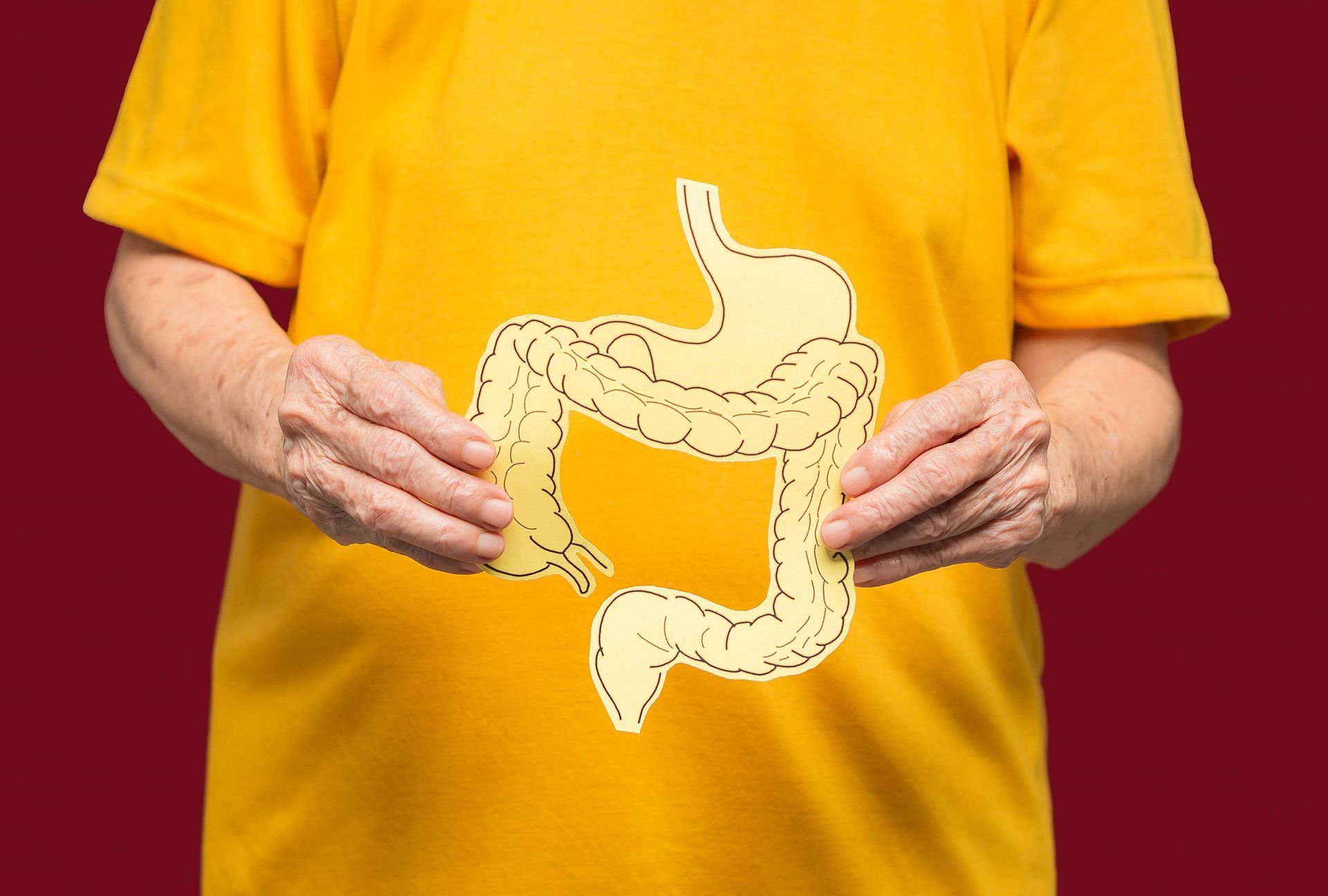Mount Elizabeth Novena Hospital #10-48/49
WHAT ARE THE COMMON SYMPTOMS OF COLORECTAL DISEASES?
Colorectal health is a key factor in overall well-being, yet its significance often goes unnoticed until symptoms emerge. From subtle signs like lower abdominal discomfort to more alarming indicators such as blood in the stool, colorectal diseases encompass a spectrum of conditions that can significantly impact one's quality of life.
If you encounter any of these signs, paying attention to them and seeking early intervention can significantly improve outcomes.
BLOOD IN STOOL
One of the most noticeable signs of colorectal issues is the passing of blood in the stool. You must consult a doctor promptly if you observe bright red or dark-coloured blood during bowel movements.
Blood in the stool may indicate conditions such as
haemorrhoids anal fissures, or more sinister issues like colorectal cancer.
LOWER ABDOMINAL DISCOMFORT
Persistent lower abdominal discomfort is another symptom that should not be ignored. Discomfort, such as cramping, bloating, or a feeling of fullness in the abdomen, can be associated with various digestive issues and may signify colorectal problems.
LOWER ABDOMINAL PAIN
Pain in the lower abdomen that is persistent or recurrent is a significant red flag symptom for colorectal diseases. The discomfort may be mild or severe, and its cause should be identified to determine the appropriate course of action.
UPPER ABDOMINAL PAIN
While colorectal diseases primarily affect the lower digestive tract, upper abdominal pain can still be linked to certain conditions. It's important not to dismiss this symptom, as it may indicate issues such as inflammatory bowel disease or problems with the upper gastrointestinal tract.
ABDOMINAL BLOATING
Excessive abdominal bloating that persists over time should be addressed by a doctor. This symptom could be related to colorectal issues such as
irritable bowel syndrome (IBS) or inflammatory bowel disease (IBD).
ANUS IRRITATION
Persistent irritation around the anus, including itching or discomfort, may be a sign of colorectal issues. This could be due to conditions like anal fissures, infections, or haemorrhoids.
ANUS SWELLING
Swelling around the anus can be a cause for concern. It may accompany other symptoms like pain and bleeding, indicating various colorectal conditions that require medical attention.
HOW ARE COLORECTAL DISEASES DIAGNOSED?
If you have symptoms suggestive of colorectal diseases, it is best to seek medical evaluation to arrive at an accurate diagnosis. Doctors may employ several diagnostic methods such as the following.
-
Proctoscopy / Anoscopy:
This is a simple examination that is conducted in the clinic setting and allows for a good evaluation of the anus, anorectal canal and the lower part of the rectum. -
Colonoscopy
: Colonoscopy involves using a flexible tube with a camera to examine the entire colon for abnormalities. -
Imaging tests
: CT scans, MRI scans, and X-rays can help visualise the colon and identify abnormalities or growths. -
Blood tests
: Blood tests can provide valuable insights about potential issues, such as anaemia or inflammation. -
Stool tests
: Analysing stool samples can help identify the presence of blood, bacteria, or other abnormalities. -
Biopsy
: If suspicious growths or lesions are detected, a biopsy may be recommended to determine if they are cancerous.
TREATMENT FOR COLORECTAL DISEASES
The treatment approach for colorectal diseases depends on the diagnosis and the extent of the condition. Common treatments include:
-
Medication
: Prescription medications may be recommended to manage symptoms, reduce inflammation, or treat infections. -
Lifestyle changes
: Dietary modifications, increased physical activity, and stress management can help manage certain colorectal conditions. -
Surgery
: Severe cases may require surgery to remove tumours, repair damaged tissue, or address other issues.
SHOULD YOU UNDERGO COLORECTAL SURGERY?
The decision to undergo colorectal surgery depends on various factors, including the type and stage of the disease, your overall health, and complications.
Your surgeon will discuss the surgery's potential benefits and risks, so you can make an informed choice.
WHAT IS THE COST OF COLORECTAL SURGERY IN SINGAPORE?
The cost of colorectal surgery can vary depending on the procedure type, the case's complexity, and the healthcare facility. It's advisable to consult your healthcare provider and insurance company to understand the actual costs and coverage.
WHAT SHOULD YOU LOOK OUT FOR AFTER COLORECTAL SURGERY?
Recovery from colorectal surgery involves post-operative care and monitoring for potential complications. You should follow your healthcare provider's instructions diligently and be vigilant for signs of complications, such as:
-
Excessive bleeding
-
Infection
-
Changes in bowel habits
-
Unrelieved pain
CALL YOUR COLORECTAL DOCTOR IMMEDIATELY IF:
-
You experience severe bleeding
: Profuse or continuous bleeding after surgery requires immediate medical attention. -
You have signs of infection
: Symptoms like fever, increased pain, or discharge may indicate an infection that requires prompt intervention. -
Your symptoms worsen
: If your symptoms get worse or new ones arise, contact your colorectal doctor promptly for advice.
LOWER AND UPPER ABDOMINAL PAIN TREATMENT IN SINGAPORE
If you experience abdominal pain and the symptoms discussed above, we urge you to have them assessed for your colorectal health. Early detection and management can improve your condition and quality of life.
Colorectal Clinic Associates specialises in diagnosing and treating colorectal diseases. Our medical team in Singapore is experienced in identifying colorectal issues and suitable treatments.




